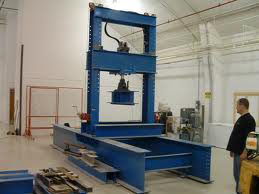COURSE OVERVIEW
SE0042 : Preventive & Predictive Maintenance

OVERVIEW
| COURSE TITLE | : | SE0042 : Preventive & Predictive Maintenance |
| COURSE DATE | : | Nov 10 - Nov 14 2024 |
| DURATION | : | 5 Days |
| INSTRUCTOR | : | Mr. Steve Magalios |
| VENUE | : | Dubai, UAE |
| COURSE FEE | : | $ 5500 |
| Request For Course Outline | ||
OTHER SCHEDULED DATES
| **---- No Other Scheduled Dates ----** |
Course Description
This course is designed to provide participants with a detailed and up-to-date overview of Preventive and Predictive Maintenance. It covers the various types and importance of maintenance; the fundamentals of preventive maintenance and its application in civil engineering; the predictive maintenance techniques and reliability-centered maintenance (RCM); the specific roles of civil engineers in maintaining infrastructure in the petroleum industry; the maintenance management systems (MMS) as the digital systems used to manage and track maintenance activities; and the maintenance schedules for civil infrastructure.
Further, the course will also discuss the monitoring and inspection of critical civil assets like buildings, foundations and pipelines; the routine maintenance tasks and the importance of proper documentation and record-keeping in preventive maintenance programs; managing maintenance budgets and resources; prioritizing maintenance tasks based on risk assessments for petroleum infrastructure; the condition-based maintenance (CBM), non-destructive testing (NDT) methods, vibration analysis and thermographic inspections; and monitoring the condition of structures by analyzing wear debris and surface degradation.
During this interactive course, participants will learn the collection and analysis of data from infrastructure to predict maintenance needs; optimizing preventive maintenance schedules using data to refine and improve preventive maintenance schedules for civil assets; integrating predictive and preventive maintenance strategies for optimal results; implementing condition monitoring systems (CMS), using failure modes, effects, and criticality analysis (FMECA) and improving maintenance planning for civil engineers; the lifecycle cost analysis and safety in maintenance operations; incorporating sustainability into maintenance practices to reduce environmental impact and resource usage; the Lean and Six Sigma principles; and conducting maintenance audits and assessing performance using key metrics.
link to course overview PDF
Further, the course will also discuss the monitoring and inspection of critical civil assets like buildings, foundations and pipelines; the routine maintenance tasks and the importance of proper documentation and record-keeping in preventive maintenance programs; managing maintenance budgets and resources; prioritizing maintenance tasks based on risk assessments for petroleum infrastructure; the condition-based maintenance (CBM), non-destructive testing (NDT) methods, vibration analysis and thermographic inspections; and monitoring the condition of structures by analyzing wear debris and surface degradation.
During this interactive course, participants will learn the collection and analysis of data from infrastructure to predict maintenance needs; optimizing preventive maintenance schedules using data to refine and improve preventive maintenance schedules for civil assets; integrating predictive and preventive maintenance strategies for optimal results; implementing condition monitoring systems (CMS), using failure modes, effects, and criticality analysis (FMECA) and improving maintenance planning for civil engineers; the lifecycle cost analysis and safety in maintenance operations; incorporating sustainability into maintenance practices to reduce environmental impact and resource usage; the Lean and Six Sigma principles; and conducting maintenance audits and assessing performance using key metrics.
TRAINING METHODOLOGY
This interactive training course includes the following training methodologies as a percentage of the total tuition hours
LecturesWorkshops & Work Presentations
Case Studies & Practical Exercises
Videos, Software & Simulators
In an unlikely event, the course instructor may modify the above training methodology before or during the course for technical reasons.
VIRTUAL TRAINING (IF APPLICABLE)
If this course is delivered online as a Virtual Training, the following limitations will be applicable
| Certificates | : | Only soft copy certificates will be issued to participants through Haward’s Portal. This includes Wallet Card Certificates if applicable |
| Training Materials | : | Only soft copy Training Materials (PDF format) will be issued to participant through the Virtual Training Platform |
| Training Methodology | : | 80% of the program will be theory and 20% will be practical sessions, exercises, case studies, simulators or videos |
| Training Program | : | The training will be for 4 hours per day starting at 09:30 and ending at 13:30 |
| H-STK Smart Training Kit | : | Not Applicable |
| Hands-on Practical Workshops | : | Not Applicable |
| Site Visit | : | Not Applicable |
| Simulators | : | Only software simulators will be used in the virtual courses. Hardware simulators are not applicable and will not be used in Virtual Training |
RELATED COURSES

SE0380 : Knowledge of Materials, Composite Materials & Testing Equipment
- Date : Nov 18 -Nov 22 / 3 Days
- Location : Abu Dhabi, UAE
- Course Details Register

SE0030-4D : Durability of Reinforced Concrete Structures Assessment, Repair & Risk-Based Inspection
- Date : Dec 16 -Dec 19 / 3 Days
- Location : Dubai, UAE
- Course Details Register
